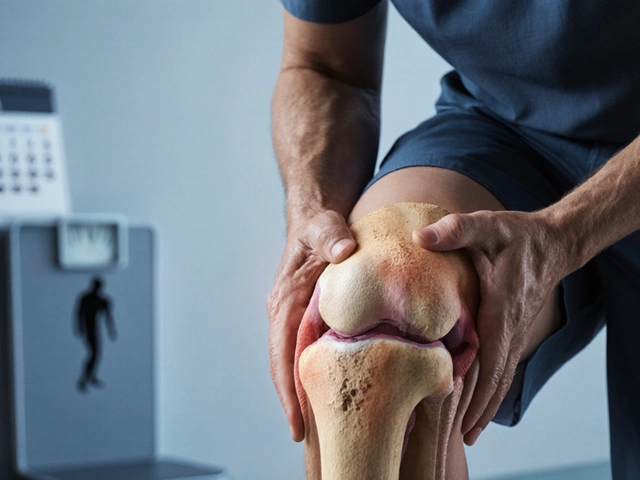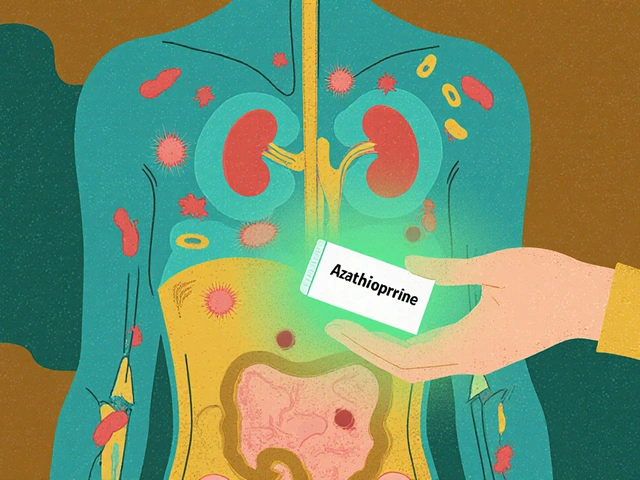Metabolism: What It Is and How to Support It
Metabolism is the set of processes that turn food into energy. It affects your weight, mood, sleep, and how well your body handles fuel. You can’t control every factor (age and genetics matter), but small, practical changes make a real difference. Below are clear, useful steps you can try today and quick notes on when to talk to a doctor.
Simple ways to support your metabolism
Move more, but be smart about it. Strength training builds muscle, and muscle burns more energy at rest than fat. Aim for two resistance sessions a week plus some brisk walking most days. Short high-intensity bursts (30–60 seconds) sprinkled into workouts raise calorie burn and are time-efficient.
Eat protein with each meal. Protein needs more energy to digest, so it gives a small boost to your daily calorie burn and helps protect muscle when you’re losing weight. Choose lean meats, eggs, beans, or dairy. Don’t skip meals often — long gaps can slow your energy levels and make you overeat later.
Sleep matters. Poor sleep changes hunger hormones and lowers metabolic rate. Target 7–8 hours a night. If you struggle, focus on a consistent bedtime, reducing screens before bed, and limiting heavy meals late at night.
Stay hydrated. Even mild dehydration can reduce calorie burn a bit. Drinking water before meals can also help control appetite. Caffeine in moderate amounts can raise metabolism temporarily, but don’t rely on it as a fix—avoid late caffeine if it upsets sleep.
Be cautious with extreme diets. Very low-calorie plans often slow metabolism and cost you muscle. If you want to lose weight, aim for steady, sustainable changes—small calorie cuts plus movement and protein.
When meds, tests, or a doctor matter
If you notice sudden weight change, persistent fatigue, hair loss, or temperature sensitivity, check your thyroid. Low thyroid function (hypothyroidism) is a common, treatable cause of metabolic slowdown. HeyDoctor.com has clear articles on thyroid treatments and affordable options to discuss with your clinician.
Some medicines affect weight and metabolism. Diabetes drugs, steroids, certain antidepressants, and older antipsychotics can change appetite or energy use. If a med seems to affect your weight or energy, don’t stop it—talk with your prescriber about alternatives or adjustments.
Supplements? A few like omega-3s or vitamin D can help overall health, but there’s no magic pill to fix metabolism. Be wary of products promising quick fixes. Check reliable sources and talk to your doctor before starting anything new.
Want more on related topics? Check our posts about thyroid treatments, diabetes medications like Glipizide, mood-boosting supplements, and how specific drugs affect weight. If symptoms are sudden or severe, book a medical check—fixing an underlying condition often restores normal metabolism faster than any fad.
Small, consistent steps—better sleep, strength work, protein, hydration, and sensible medical checks—add up. You don’t need drastic measures to improve how your body uses energy.

- May 15, 2025
- Posted by Cillian Osterfield
Acetyl-L-Carnitine and Thyroid Health: Vital Facts You Can't Ignore
Curious about how acetyl-l-carnitine influences thyroid health? This article sheds light on the chemical's mechanisms, its impact on thyroid hormones, and what science says about using it for better metabolism. Discover expert tips and reliable facts about possible benefits and risks to make smart choices for your thyroid health. You'll find real data, debunked myths, and practical advice. All you need to know, explained clearly in one place.
Categories
- Health and Wellness (72)
- Medications (68)
- Health and Medicine (28)
- Pharmacy Services (12)
- Mental Health (9)
- Health and Career (2)
- Medical Research (2)
- Business and Finance (2)
- Health Information (2)
Latest Posts
©2026 heydoctor.su. All rights reserved





